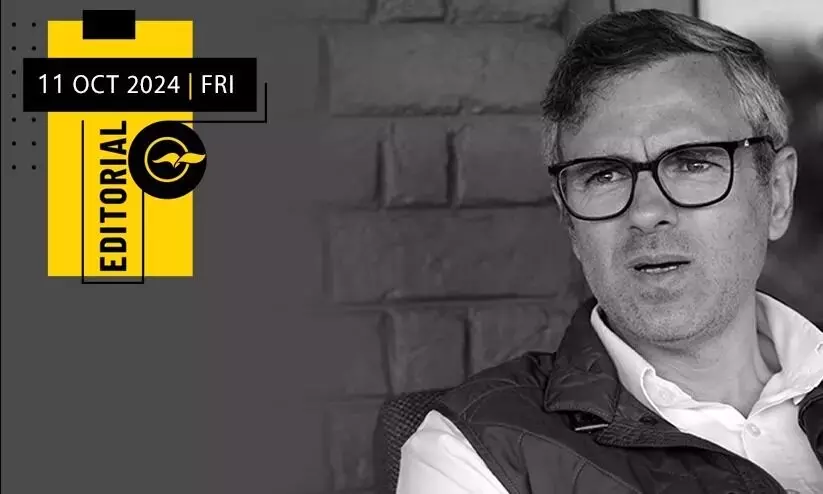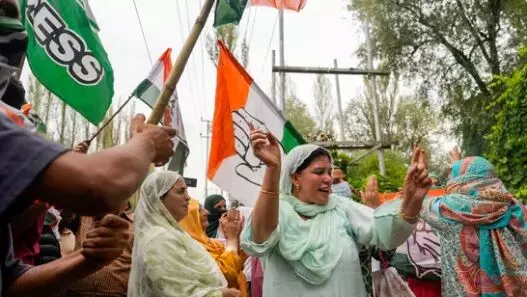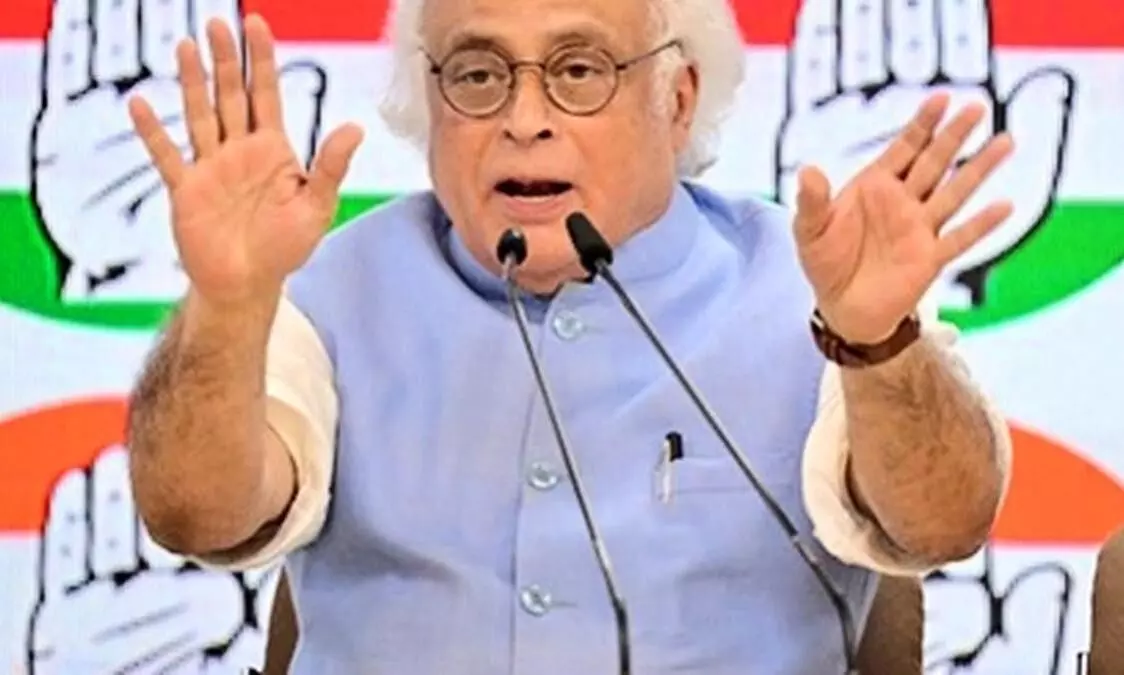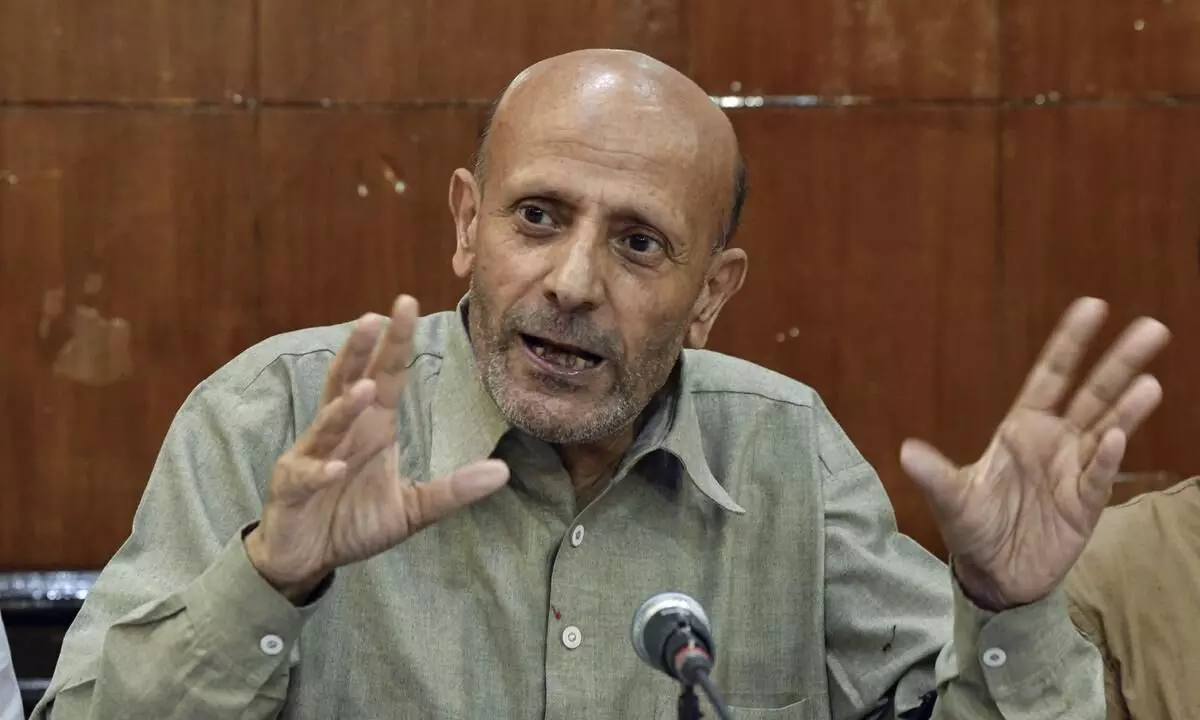
Popular verdict should be honoured in Jammu & Kashmir
text_fieldsAfter a gap of ten years, Kashmiris are hoping for an end to a long period of uncertainty as the INDIA coalition secured a clear majority by winning 49 out of 90 seats in the Jammu and Kashmir assembly elections held after a gap of ten years. The people of Kashmir, who have gone through endless trials since independence, are sharing relief and good hope that their democratic resistance against the imposition of central rule through the Lt Governor, along with loss of special status, has achieved undeniable success.
The unprecedented voting percentage in this election is a direct testimony to the fact that they did not give up their faith in democracy or challenge the rule of law even as they were victims of black laws and torture brought by the central government one after the other. It should be remembered that the Election Commission came forward to hold this election only close to the deadline set by the Supreme Court when it upheld the central government's decision to annul the special status of Jammu and Kashmir under Article 370 of the Constitution.
This happened even when the BJP was using all its tactics to get a majority in the legislative assembly that would come into being after the election. Six constituencies were created in the less populated Hindu-majority region of Jammu, while only one constituency was increased in the Valley with a larger population. Thus, in Kashmir, the number of seats increased from 46 to only 47, while in Jammu, the constituencies increased from 37 to 43. Further, while Jammu got one constituency for every 1,25,082 voters, Kashmir got one seat for every 1,46,543 voters. Besides, most of the 16 seats reserved for Scheduled Castes are in the Kashmir Valley. As if this manipulation were not enough, it was ensured that the Central government got the right to nominate five members to the assembly. It is anybody’s guess as to who the Modi-Amit Shah team - who have planted their own favourites in all the Raj Bhavans of the country - will nominate for the state’s legislative assembly.
But if the Centre tries to override the verdict given by the people of Jammu and Kashmir defeating all the machinations, the consequences will be unpredictable. There are indications that the victorious INDIA Front will elect former Chief Minister Omar Abdullah as the head of the government and a Congress representative as the Deputy Chief Minister. Omar's father Farooq Abdullah has already confirmed this. It should be assumed that Omar Abdullah would be willing to compromise and be flexible as much as possible in light of previous experiences.
Having assured that he will never take a path of confrontation and that the only agenda before him is the development of the state and the solution of people's problems, Omar is optimistic that Prime Minister Narendra Modi will honour his promise to grant statehood to J&K. Now that the special status of J&K has been taken out of the constitution, the INDIA front is not raising its voice for its restoration at all.
However, the question that needs to be answered is whether the rights granted by the Constitution to other states of the country will be granted to J&K. Under the Jammu and Kashmir Reorganization Act, 2019, the state has the power to legislate on its own and exercise concurrent rights in departments other than police and public order. But the state will not have authority in matters like education, marriage, taxation, transfer of property, forestry, trade unions, labour welfare or charity organizations. The state’s powers will be limited to municipalities, public health, hospitals, liquor sales, roads and bridges, agriculture, water, land, mining control, industry, salaries of legislators, revenue and taxation. Most recently, on July 12, the Home Ministry issued an order investing the Lt Governor with larger powers. Accordingly, the last word in police, public administration and All India Services will rest with the Lt Governor. The state government can take a decision on the appointment of the Advocate General, permission for prosecution and permission to file an appeal only after the Lt Governor has reviewed them.
In short, the Jammu and Kashmir governments will not have the status of other state governments other than those of a little bigger state than Delhi. Kejriwal’s AAP government is in a struggle for state powers for Delhi. If the Modi-Amit Shah government decides to subvert the mandate and keep J&K as its own colony in future too, it is unlikely that even the peaceful atmosphere they still claim will continue there. Justice and the spirit of democracy demand that the state be accepted as an integral part of the country and that constitutional rights and powers, which the citizens of the rest of the country enjoy, are granted to Kashmiris too. Minority hatred, intolerance and irrational apprehension will only tarnish the nation's image in front of the world.


























